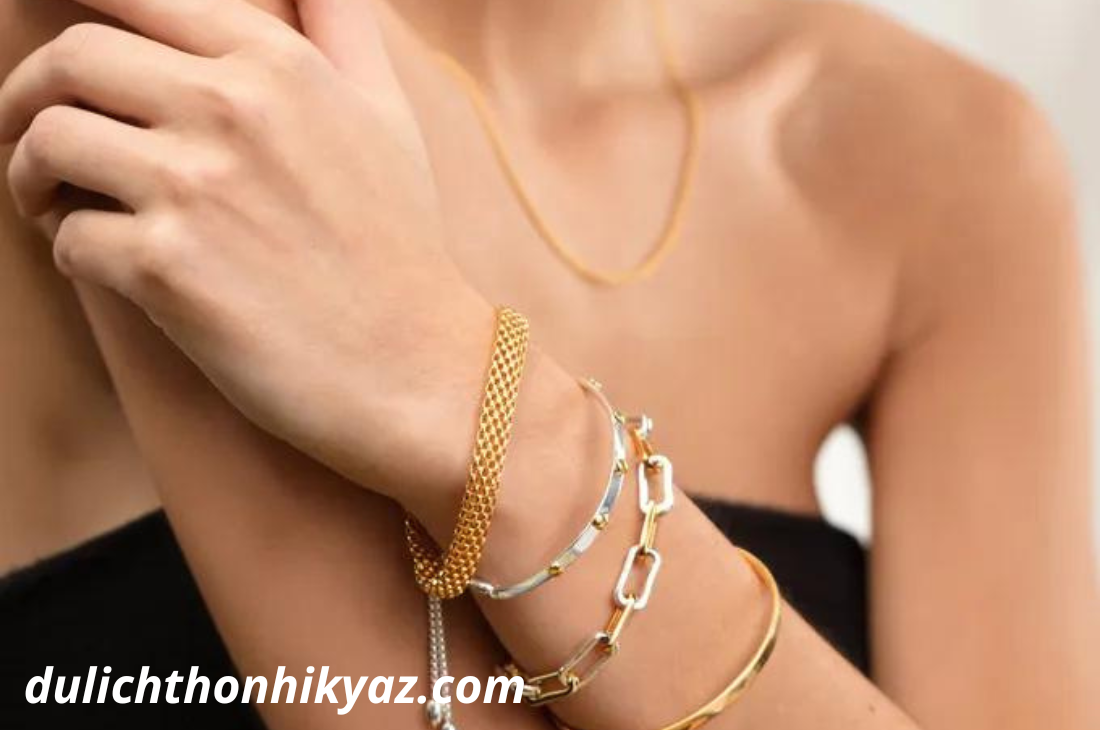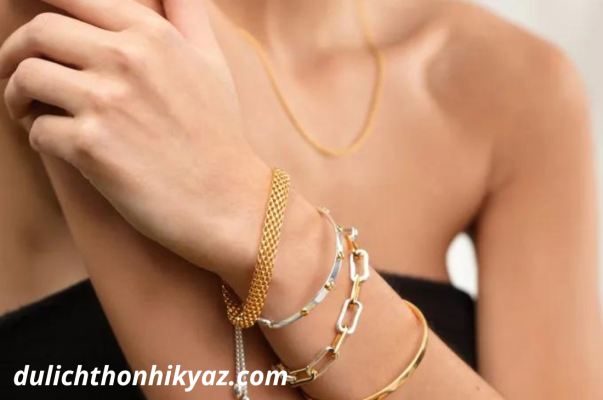Precious metals like gold, silver, and platinum have long been cherished for their beauty, durability, and value. Each metal offers unique properties and aesthetics, making them popular choices in jewelry design. Understanding the characteristics of these metals can help you make informed decisions when selecting or designing jewelry pieces.
Key Takeaways
- Gold: Known for its warmth and luster, gold is versatile and comes in various colors and purities.
- Silver: Valued for its bright, white sheen, silver is a popular and affordable choice for jewelry.
- Platinum: Praised for its strength and rarity, platinum is a premium metal with a natural white color.
Gold
Types and Colors Gold is a classic choice in jewelry, available in various colors and purities. The most common gold types are:
- Yellow Gold: Traditional and warm, yellow gold is pure gold alloyed with metals like copper and zinc.
- White Gold: Achieved by alloying gold with metals like palladium or nickel, white gold has a sleek, modern look.
- Rose Gold: Created by adding copper to gold, rose gold features a romantic, pinkish hue.
Purity Gold purity is measured in karats (k). Pure gold is 24k, but most jewelry is made from 18k, 14k, or 10k gold, which mixes gold with other metals for added strength.
Advantages
- Versatility: Gold’s ability to be alloyed into different colors and purities makes it suitable for various styles.
- Durability: Gold is relatively resistant to tarnish and corrosion.
Silver
Types and Qualities Silver is widely used in jewelry, and its most common forms include:
- Sterling Silver: Composed of 92.5% pure silver and 7.5% other metals (usually copper), sterling silver is durable and maintains its shine.
- Fine Silver: 99.9% pure silver, fine silver is softer and less commonly used for jewelry due to its tendency to scratch easily.
Characteristics Silver is known for its bright, white luster and can be easily polished to maintain its shine. It is often alloyed with other metals to enhance its durability.
Advantages
- Affordability: Silver is generally more affordable than gold and platinum.
- Shine: Its reflective quality makes it a popular choice for contemporary designs.
Platinum
Properties Platinum is a dense, heavy metal with a naturally white color that doesn’t tarnish. It is one of the rarest and most durable precious metals, making it a premium choice for fine jewelry.
Benefits
- Strength: Platinum is highly durable and resistant to scratching and tarnishing, making it ideal for everyday wear.
- Hypoallergenic: Platinum is less likely to cause allergic reactions, making it suitable for sensitive skin.
Use in Jewelry Platinum is often used in engagement rings, wedding bands, and high-end jewelry due to its strength and permanence. Its natural white hue complements diamonds and other gemstones beautifully.
Conclusion
Gold, silver, and platinum each offer unique qualities that make them desirable for different types of jewelry. Gold is valued for its warmth and versatility, silver for its bright shine and affordability, and platinum for its strength and premium status. Understanding these metals’ characteristics can help you choose the right material for your jewelry needs, whether you’re selecting a timeless piece or investing in a high-end design.
FAQ
What are the main differences between gold, silver, and platinum in jewelry? Gold is known for its warm color and versatility, silver is valued for its bright, white sheen and affordability, and platinum is prized for its durability, natural white color, and rarity.
Why is sterling silver commonly used in jewelry? Sterling silver, composed of 92.5% pure silver, is durable and maintains its shine, making it a practical choice for everyday jewelry.
What is the difference between 18k and 24k gold? 24k gold is pure gold, while 18k gold contains 75% gold mixed with other metals for added strength and durability.
Is platinum a good choice for engagement rings? Yes, platinum is an excellent choice for engagement rings due to its strength, natural white color, and hypoallergenic properties.
How do I care for silver jewelry to prevent tarnishing? Keep silver jewelry clean and dry, store it in anti-tarnish pouches or cloths, and regularly polish it with a silver cleaner to maintain its shine.




